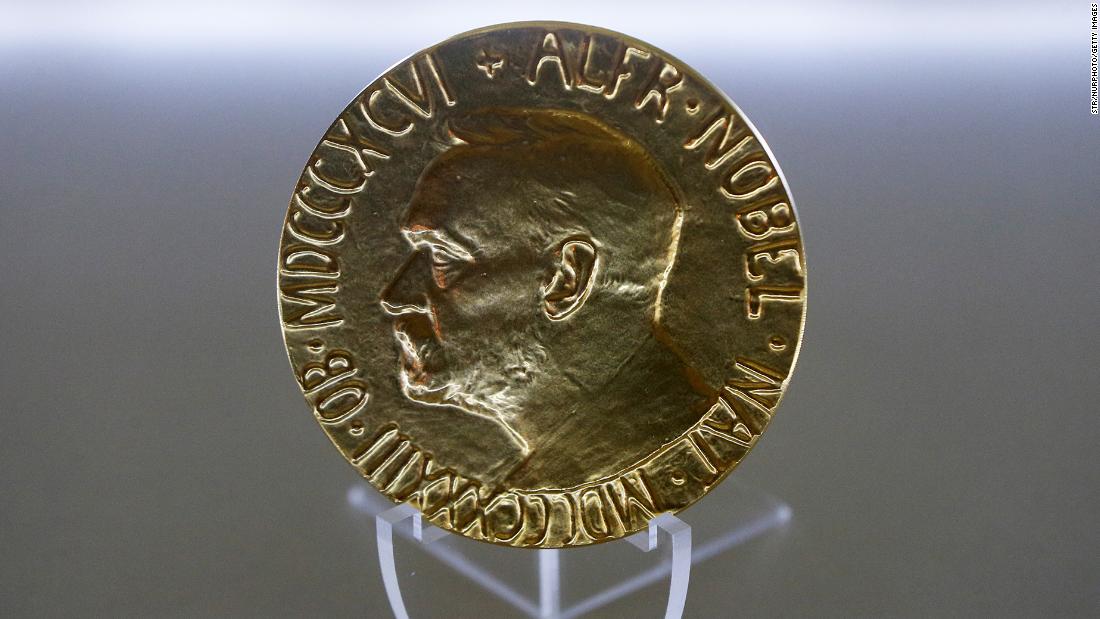This years’s Peace Prize sends a likely unwelcome message to the authorities in Iran, which has for decades been dictating to women how they should dress.
The Islamic regime made the hjiab compulsory in 1979, after toppling the Pahlavi dynasty. It also created the notorious morality police, tasked with ensuring that the rules are followed.
Several anti-hijab movements have emerged in Iran over the years, often leading to crackdowns by the regime, with massive waves of arrest and persecution.
Following the death of 22-year-old Mahsa Amini in September of last year, many took to the streets protesting the mandatory hijab law and other issues.
The movement was violently quashed, however, and the regime responded months later with a new hijab bill that, if passed, would enshrine unprecedentedly harsh punitive measures into law.
The 70-article draft law, which was published on Iranian media just weeks before the one-year anniversary of the protests, set out a range of proposals, including much longer prison terms for women who refuse to wear the veil, stiff new penalties for celebrities and businesses who flout the rules, and the use of artificial intelligence to identify women in breach of the dress code.
Experts said the bill was a warning to Iranians that the regime would not back down from its stance on the hijab despite the mass demonstrations that rocked the country last year.
Days after the protest anniversary, Iran’s parliament last month passed a draconian new hijab legislation, which authorities said would be enacted for a three-year trial period once the Guardian Council, which oversees legislative matters in the Islamic Republic, approves it.
Parts of the bill are ambiguous, but some clauses sanction punishments of up to 10 years, and fines between 180 million rials ($4,260) and 360 million rials ($8,520).
The punishments are a sharp split from today’s measures. Under the current Islamic penal code, those in breach of the dress code face between 10 days to two months in prison, or a fine between 50,000 to 500,000 Iranian rials, what is today between $1.18 to $11.82.
It is “a clear response to the protests from September of last fall,” Sanam Vakil, director of the Middle East and North Africa program at the Chatham House think-tank in London, told CNN in August before the bill was introduced in parliament, adding that the establishment was attempting to “reassert authority over veiling and the requirements expected of women.”
Author Profile
- "Far Left" Bias Rating
- The Cable News Network is a multinational cable news channel headquartered in Atlanta, Georgia, U.S. Founded in 1980 by American media proprietor Ted Turner and Reese Schonfeld as a 24-hour cable news channel.
Latest entries
 HeadlinesAugust 17, 2024A mom with a license plate that reads 'PB4WEGO' wins a battle with the state to keep it
HeadlinesAugust 17, 2024A mom with a license plate that reads 'PB4WEGO' wins a battle with the state to keep it HeadlinesAugust 3, 20243 alleged gang members and an associate charged in the fatal shooting of an off-duty LAPD officer
HeadlinesAugust 3, 20243 alleged gang members and an associate charged in the fatal shooting of an off-duty LAPD officer HeadlinesJuly 16, 2024June 18 2024: US heat wave news
HeadlinesJuly 16, 2024June 18 2024: US heat wave news HeadlinesJuly 11, 2024Jury begins deliberations in Hunter Biden's federal gun trial
HeadlinesJuly 11, 2024Jury begins deliberations in Hunter Biden's federal gun trial

